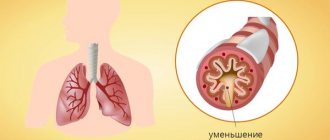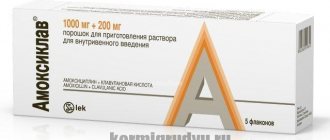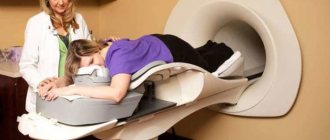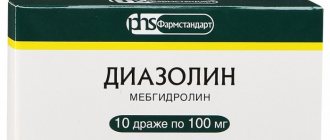The frequency of coughing in humans varies from one to a hundred or more times per month. Depending on the cause that provokes this symptom, it can be prolonged, short-term or one-time.
Modern pharmacology provides many medicines to relieve cough. However, not everyone can take them. A special group includes pregnant and lactating women.
For them, the use of any medications must be agreed with a doctor. By turning to a doctor for help, a new mother can find out how to treat cough while breastfeeding in her case.
Nature of origin of cough
Treatment of cough during breastfeeding cannot be started without determining the nature of the symptom that has arisen.
First, you should know that a cough is a forced exhalation through the mouth, accompanied by a sound. It is provoked by irritation of receptors located throughout the respiratory tract (from the upper to the lower).
A worrying sign can be physiological, not dangerous, or pathological. The latter is divided by nature:
- dry (accompanied by frequent forced exhalations without sputum production);
- wet (has a deep sound, accompanied by the release of mucous, serous, purulent sputum).
The timbre differs into dull, ringing, barking, hoarse and silent. Depending on the duration, it can be acute (3-5 days), protracted (over 14 days) or chronic (a month or more).
Treatment during breastfeeding
What you can do for cough while breastfeeding, you need to find out from your doctor. Only a doctor, after an examination, can reliably determine the cause of the symptom. The method of treatment will depend on the diagnostic results.
- For viral sore throat, medications are needed, the action of which is aimed at strengthening the immune system and fighting the pathogen.
- The bacterial origin of cough requires the use of antibiotics. It is important to establish the sensitivity of microorganisms before prescribing them.
- The allergic symptom is eliminated by eliminating the allergen and taking antihistamines.
Forced exhalations can accompany diseases not related to the respiratory system (gastrointestinal pathologies, cardiovascular disorders). In addition to medications that act on the cause of cough, doctors prescribe symptomatic medications to the nursing mother to alleviate this symptom.
Cough tablets for breastfeeding
Cough tablets for breastfeeding are also not very widely available due to the restrictions that are imposed on the nursing mother due to her position.
These drugs included the drugs ACC and Fluimucil. These drugs are based on acetylcysteine, a derivative of the amino acid cysteine. Due to its affinity with the natural chemical components of our body, this medicine can be used by pregnant and lactating women.
Hexoral lozenges can be used on the recommendation of a doctor. This medicine contains benzocaine, a local anesthetic. When the medicine is taken orally, only a small amount enters the mother's bloodstream, so there should be no harm to the baby.
Medicine Lizobakt. The drug can be used to treat viral infections and inflammation in the upper respiratory tract, which can lead to a reflex cough.
Prohibited Practices and Precautions
Every nursing woman should remember the basic aspects of cough treatment. You need to learn several actions for yourself that cannot be performed under any circumstances.
- Interrupt lactation.
It is a mistake to believe that you can infect your baby with breast milk. On the contrary, this natural food contains immunoglobulins that help the child not get sick. There is a myth that milk spoils when sick. This misconception leads to the fact that the baby is left without useful protective nutrition.
- Use your usual medications.
If a new mother previously treated her cough with syrups on her own, she can no longer use them. You should forget about all medications that were taken before pregnancy. Many of them pass into breast milk and can harm the baby.
- Refuse to drink.
During illness, most patients lose their appetite. Nursing mothers are no exception. If you don’t want to eat, then you don’t need to force yourself, but it’s forbidden to refuse water. At elevated temperatures, milk becomes more viscous. Lack of fluid can cause lactostasis.
- Do warm-ups.
It is unacceptable to apply warming ointments, gels or place mustard plasters on the mammary gland area.
- Take antibiotics.
Of course, there are antimicrobial agents that are acceptable for use during breastfeeding. However, their use must be prescribed by a doctor. Fever and cough do not necessarily accompany a bacterial infection, and the use of antimicrobial drugs during a viral disease aggravates its course.
If symptoms of illness appear, a new mother should not make drastic decisions on her own. It would be better to consult a doctor and find out what to take for cough while breastfeeding.
What measures should a sick mother breastfeeding her child take?
Did you suddenly develop a cough? Are there other symptoms of a cold or viral illness? What should a nursing mother do in such a situation so as not to harm her own child’s body?
Treatment of cough during breastfeeding should not affect further feeding of the baby. When the first symptoms appear, the baby should not be weaned, since infection through mother's milk is excluded. Lactation is quite useful, because by feeding on breast milk, the baby’s body receives a lot of useful substances that develop strong immunity. And to eliminate the risk of infection, a nursing mother needs to use a gauze bandage for her face. It needs to be changed every 2-3 hours. It is also important to observe personal hygiene rules and regularly ventilate the room. Such protective measures will reduce the risk of infection of the child.
During illness, a person experiences a lack of fluid in the body. Nursing mothers need to drink as much purified water as possible; freshly prepared dried fruit compotes are also acceptable. The abundance of fluid allows you to quickly eliminate the virus from the body, which, accordingly, will contribute to a quick recovery.
You can also drink warm water without gases if you have a severe cough. Entering the body, the liquid moisturizes the dry environment of the respiratory system. Drinking frequently will allow you to quickly achieve a wet cough that removes phlegm and mucus from the respiratory system. And at elevated body temperatures, drinking regimen will eliminate the risks of developing lactostasis, which occurs against the background of changes in the structure of breast milk with this symptom.

Allergy medications
Allergic cough during lactation is quite difficult to treat, since many antihistamines are contraindicated. Initially, it is necessary to eliminate the cause of the reflex symptom. Doctors recommend using drugs available for use in childhood. Popular ones are: Fenistil, Zyrtec, Suprastin. Read more about drugs for treating allergic cough in children here, and in adults here.
Folk cough remedies for a nursing mother
Any medicine for cough while breastfeeding rightfully causes mistrust in a woman. For this reason, new mothers try to resort to folk remedies, considering them safe and effective.
Doctors warn that such a statement is misleading. Most folk remedies can cause an allergic reaction in a baby.
When taking such elixirs, you should carefully monitor the baby’s well-being, and if unusual symptoms appear, be sure to consult a doctor.
- Inhalations (steam, with aromatic oils, alkaline).
When a cough occurs, grandmothers advise breathing over potatoes to warm the lower respiratory tract. The effectiveness of this method has been questioned, but it continues to be used.
Inhalations with the addition of eucalyptus oil will relieve nasal congestion and have an anti-inflammatory effect. Breathing saline or mineral water through a nebulizer is an effective way to treat a non-productive wet cough.
- Rinsing with herbal decoctions (chamomile, calendula, string, sage).
A method of treating cough caused by inflammatory diseases of the larynx and nasopharynx. Rinsing is completely safe during lactation if the mother does not have a tendency to allergic reactions.
- Milk with honey.
Helps with dry, spasmodic cough. The milk must be heated, then dissolve a spoonful of honey in it. Take before bedtime.
- Raspberry, viburnum, and lingonberry tea are sources of vitamin C.
The folk remedy increases the body's resistance and accelerates the regeneration of the mucous membranes of the respiratory system. Drink warm 3-4 times a day.
- Black radish.
It has long been considered an effective remedy for treating respiratory system infections. Take one teaspoon of root juice several times a day. Can be mixed with honey to enhance the healing effect.
Despite the general consensus about the safety of folk remedies, a nursing woman should consult a doctor before using any of them. Grandmother's recipes do not replace drug treatment prescribed by a specialist.
Prevention is the best cure
The occurrence of a sore throat during lactation is not a rare phenomenon. A nursing mother needs to monitor her health especially carefully so as not to get sick. To prevent cough you should:
- eat nutritiously, and if necessary, take vitamin complexes intended for women during breastfeeding;
- maintain personal hygiene;
- regularly ventilate the room and walk with the baby;
- do not forget about sports, which strengthen the body;
- avoid crowded places during epidemics;
- If you have chronic diseases, take preventive medications prescribed by your doctor.
Taking medications during pregnancy and breastfeeding – Dr. Komarovsky School – Inter
What is the best treatment for cough while breastfeeding?
Breastfeeding women try to take care of their health, but colds cannot always be avoided. How to treat a cough while breastfeeding if the baby's mother has a cold, a viral infection, or is experiencing an allergic reaction?
Breastfeeding women try to take care of their health, but colds cannot always be avoided
brief information
Coughing is a defensive reaction, an involuntary reflex with which the body gets rid of harmful bacteria, mucus and phlegm. Cough is a symptom of various diseases. In order to cure it, you need to eliminate the pathology itself.
The causes of cough may be the following:
- allergic reaction;
- bacterial infection;
- viral infection.
Coughing is a defensive reaction, an involuntary reflex with which the body gets rid of harmful bacteria, mucus and phlegm.
Only a doctor can determine the exact cause and prescribe the correct treatment for cough during breastfeeding. At the first manifestation of a symptom, you need to see a doctor as quickly as possible in order to minimize the adverse consequences. A cough treated in time will protect your child from the disease.
Taking medications during pregnancy and breastfeeding (video)
Treatment of coughs of various origins
Allergic cough is uncommon. Its distinctive feature is the absence of other symptoms of a virus or cold: fever, sore throat. If the allergen is known, then you need to eliminate it, and then the symptoms will disappear on their own. In other cases, it is recommended to cleanse the body using activated carbon. The drug is absolutely safe for use during lactation. Charcoal removes toxins and waste from the body, which can cause an allergic reaction. Loratadine is allowed to be used as a medicine directly against allergies for nursing mothers. The components of the medication do not pass into breast milk, since the tablets dissolve and act directly in the respiratory tract.











